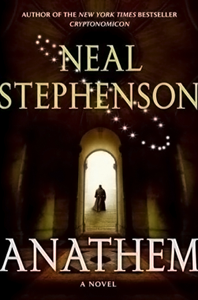Why I prayed for Paris
I put up an image that said “Pray for Paris” on my Facebook page yesterday. A few people took exception, saying that religion was the problem, and prayer was inappropriate.
In my various posts on social media I don’t mention God, religion, church, faith or prayers that often, so I wanted to take some time and explain why I put up that image, and also respond to those who call for an end to religion.
1) I love Paris – hardly an original sentiment! I love the restaurants, museums, shops, and the streetscapes. But another important part of MY VIEW of the city is defined by its churches: Notre Dame, St. Germain, and St. Sulpice are wonderful – but my favourite is St. Eustache, just north of Les Halles, and often called the church of the people of Paris. See the picture at top! On a sunny day, I cannot help but go inside each time I pass, and I always take a pew. Do I bow my head? Do I even kneel? Am I praying?
Yes to all three. But I don’t expect an omnipotent being to hear me, nor do I expect my prayers to influence a Jungian collective consciousness and somehow reach other people. Instead, I pray because I know that mindful meditation (setting an intention, and focussing on it while visualizing the desired path) really does work. I believe that the only ears that hear my prayer are mine, and the only mind it affects is my own, but the same technique that works for athletes and artists also works for regular people too. Thinking about kindness, sympathy, empathy and compassion makes us kinder, more sympathetic, more empathic and more compassionate. All good things, in my book.
In that way I genuinely believe that “praying for Paris” is a reasonable thing to ask people to do after a tragedy like yesterday’s.
2) #Endreligion. Nice hashtag…but how exactly would this be accomplished? There are lots of historical examples of trying to “get rid of religion” and: they never work, they violate civil rights at the least, and they always do more harm than good.
3) North America and Western Europe are the targets of radical Islamic terrorists. In that fight, who are our most important allies? I would argue the millions of our fellow citizens who are horrified by the acts in Paris last night – and who are also Muslim. Many of them are devout, true believers. And telling them that we want to “end religion” is not only against everything Western democracies believe in, it is a BAD STRATEGY, and pushes them into the arms of extremism.
4) Let’s ignore #2 and #3 above, and invent a magic wand that does end religion: no more churches, no more prayers. Wave that wand, and terrorism and war will go away? Maybe it would help a bit, I don’t know. But I look at the last century, and while religious reasons have accounted for some percentage of the terrorist acts, so have issues of language, race, ethnicity, politics, class, economics, power, and (especially) nationalism. Depending on the period and the place, they often have been far more harmful than religion.
I can’t prove it, but I am depressingly sure we could literally make all religion vanish – and we would just move on and find other ‘reasons’ to kill each other in terrorist attacks.
Instead of being depressed by that, I am going to remember the sunlit nave of St. Eustache, and focus on some positive and loving thoughts. Because I don’t think the alternative to that will make things better.
What am I reading, and why? Anathem
After finishing Neal Stephenson’s Baroque Trilogy, I moved on to Anathem, his 2008 speculative fiction novel. I use that term instead of science fiction, because (#spoilers) what begins as something like Umberto Eco’s Name of the Rose (a medieval mystery set in a monastery) spends a lot of time exploring profound philosophical questions, and then the alien starship arrives. It is a deft combination of historical novel, alternate history creation, and pure SF.
Why read it?
#1: It’s funny. Laugh out loud funny. The lead character needs to leave his home monastery-like thing (called a concent) and travel halfway across the world, and his older sister wants to come with him on what might be the only adventure in her life.
But after a while, she said: “Do you need transportation? Tools? Stuff?”
“Our opponent is an alien starship packed with atomic bombs,” I said. “We have a protractor.”
“Okay, I’ll go home and see if I can scrounge up a ruler and a piece of string.”
(Most people just cite the protractor line as amusing. If you remember your classical geometry, the ruler and piece of string reference is even funnier.)
#2: A lot of good speculative fiction works by taking the world as we know it, and changing one thing around. What if the Nazis had won; what if there was a planet where it was truly dark only once every thousand years; what if firemen went around burning books; what if all human history was getting a repair part for a spaceship (or acting as a giant computer to discover the meaning of life) and so on?
Anathem begins by putting all of those who DON’T believe in God inside the monasteries, and goes from there. It isn’t just a fun idea, it makes me consider deeply about the relationship between technology and thinking: in Stephenson’s world, those who believe in God have more obvious consumer technology than those inside the concents…but when the aliens show up, the cloistered monks and nuns (they aren’t EXACTLY monks and nuns, but think of them that way) have some surprising insights.
#3: The point of science fiction is not necessarily to predict the future. But sometimes it happens. I was happily reading along with Neal, and (#spoilers) enjoyed his completely wacky description of how his created world works: there are multiple universes, and it is possible to travel between universes, but human thought is capable of crossing between and influencing events in adjacent universes through quantum processes. Ha…those crazy SF novelists: where do they get their ideas?
This fall, scientists in California and Australia published a peer-reviewed scientific paper that contains many of these same elements. As has happened before, science fiction sometimes becomes science fact.




Recent Comments